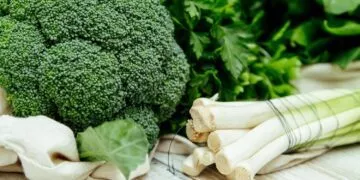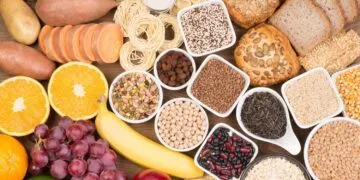Garlic, or Allium sativa, is an edible bulb related to the other alliums, such as onions, shallots, leeks, and chives.
This humble vegetable has been making our breath stinky and our food delicious for so long now that we often take it for granted.
Keep reading for some particularly pungent facts about garlic!
People have been using garlic for at least 4,000 years.
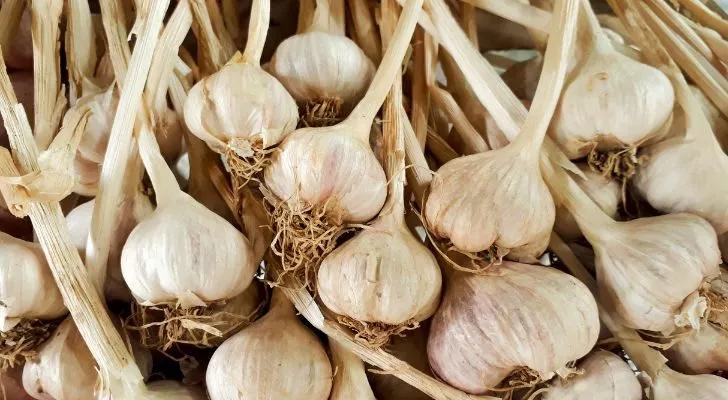
The earliest archaeological records of garlic date back to about 4,000 years ago in Mesopotamia (modern-day western Asia).
Records of garlic also go back at least a few thousand years in Egypt and China, with preserved garlic found in the tombs of Egyptian pharaohs.
It’s also been historically consumed by ancient Greeks and Romans of all classes.
It has an astounding amount of health benefits.
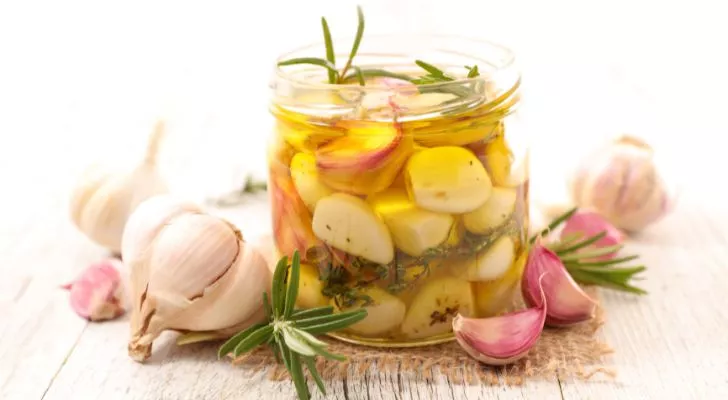
Studies have shown that garlic extract can aid in reducing blood pressure and, in some cases, can work just as well as modern medicine.
It also helps lower cholesterol levels, significantly reducing the risk of heart disease.
To top it all off, garlic contains essential nutrients and antioxidants. Garlic really is fantastic for you!
Garlic has miraculous cold prevention properties.
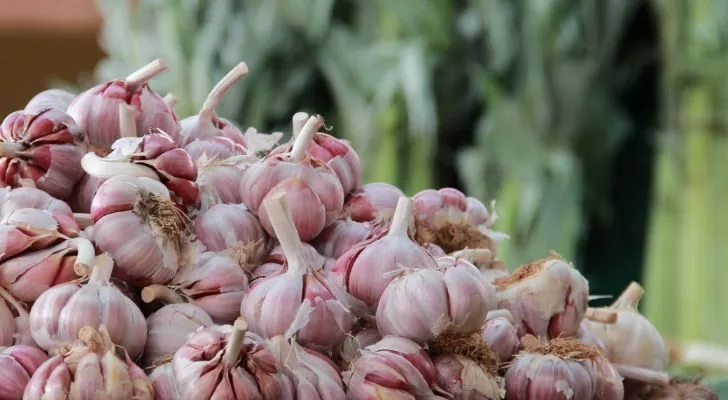
Garlic supplements have been proven time and time again to boost your immune system significantly, so don’t be afraid to be a little more heavy-handed with garlic in winter.
One study, in particular, showed that participants who took garlic supplements were 70% less likely to catch a cold, reducing the length of the cold by up to 70%.
To be fair, having to eat more garlic sounds like a pretty tasty problem to have!
Garlic has historically been used to treat a wide range of health problems.
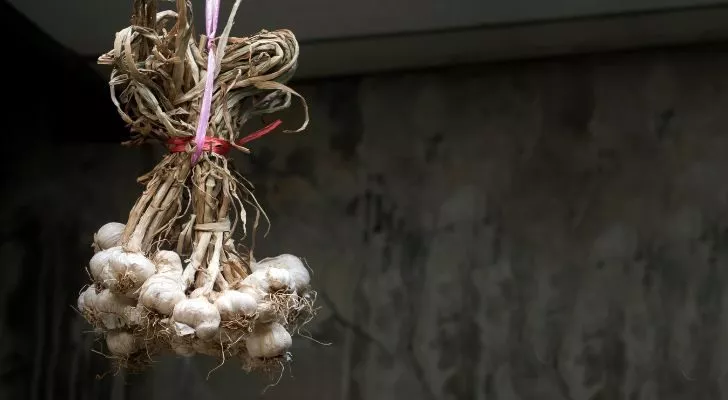
People in the ancient era weren’t just growing garlic to eat.
In fact, in some cultures, it was more likely grown more as a medicine than as anything else!
Folk medicine in Greece, Rome, China, Japan, and Egypt attributed many healing properties to this smelly plant.
It was used to treat arthritis, persistent coughs, insect and snake bites, parasites, and even as an antibiotic.
The pungent smell of garlic comes from a compound called allicin.
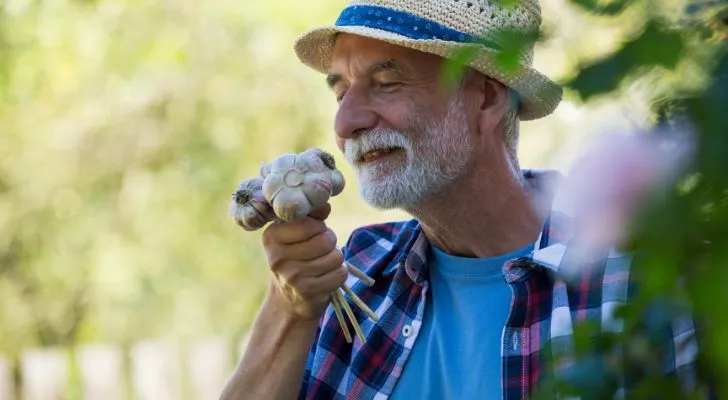
When you chop or crush garlic, it releases something called alliinase, an enzyme that turns another naturally occurring compound in garlic called allin into allicin.
Allicin has sulfur in it, and this is what makes garlic really start to stink.
When you consume garlic, the allicin is absorbed into your bloodstream.
If you eat a little bit, your breath just gets a little pongy, but if you eat enough, your sweat can smell like garlic!
The easiest way to avoid the smell of garlic is to eat more of it.
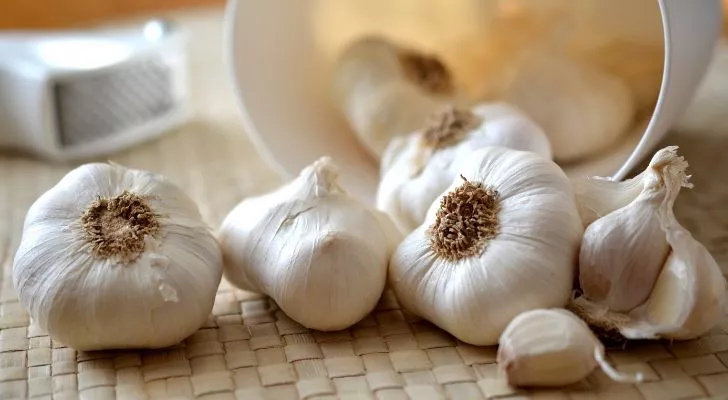
As avid garlic fans, we find it difficult to sympathize with those who complain about its odor. We will, however, divulge a little secret.
If you eat garlic regularly, you’re far less likely to notice the smell of it.
You might have to make a pact with your family and close friends to all do the same, or you’ll just pass the problem onto someone else.
Either way, it’s worth it, as garlic is fantastic!
China produces 80% of the world’s garlic.
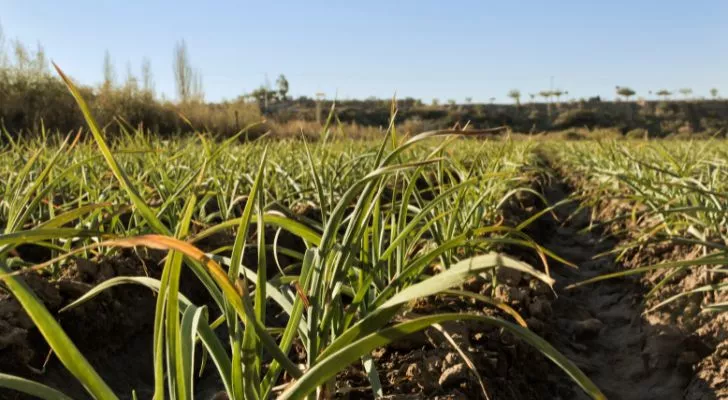
This almost makes sense when you consider how significant garlic has been for China for thousands of years. Still, 80% – 25.4 million tons (23 million tonnes) – is a wildly large number!
What’s even more insane is that this number would be far higher if the US and the EU didn’t heavily tax Chinese garlic to give local garlic farmers a chance at the market.
The next largest producer of garlic is India, with a measly 5% of world production.
Twenty-nine million tons of garlic are consumed every year.
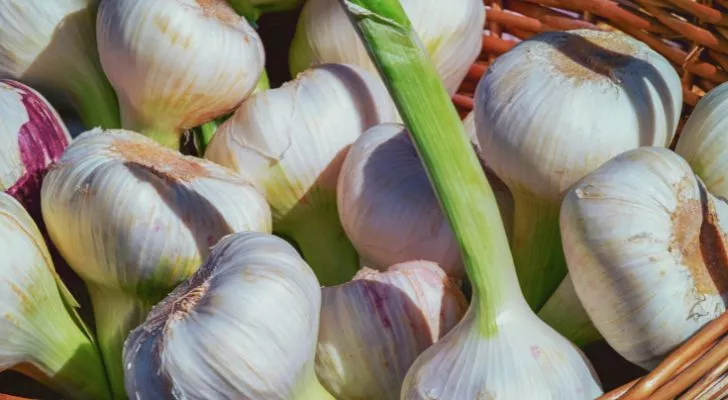
That’s 26.5 million tonnes, for you metric folks.
The average American only eats about 2 lb (0.91 KG) of garlic per year, which may seem relatively high, but not in comparison to some other countries.
For example, the average person from China eats a mind-blowing 31.5 lb (14.3 kg) of garlic yearly!
Garlic can be used as a natural pesticide and fungicide.
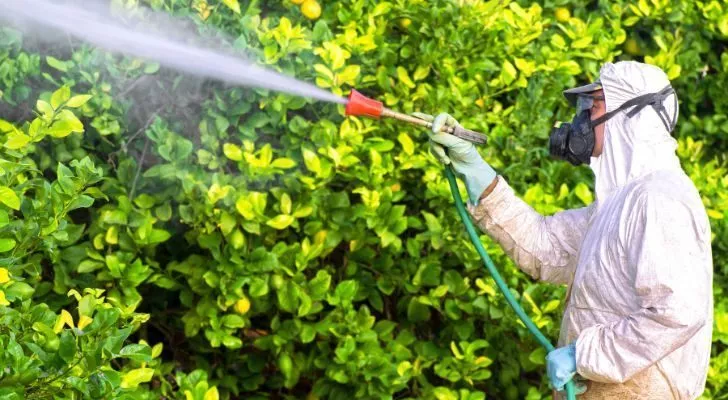
You don’t have to use garlic cloves, as the entire plant can be used.
There are a few different ways to prepare a garlic-based pesticide, but they all involve smashing up some garlic, mixing it with a few drops of soap, and letting it sit in water for a while.
The results are highly potent, with just a little bit of garlic going a long way!
You can make glue from garlic.

While these days, you might only turn to garlic glue when all other options have come up short, it was historically used as a glue of choice for certain artisans dating as far back as the 13th century.
Garlic glue is perfect for fine, delicate work such as gilding, as in attaching gold or silver leaf to objects.
It’s not quite as strong as super glue, but it’s a good option if you apply anything to paper, leather, or glass.
The amount of ways you can use garlic is pretty mindblowing!
While we wouldn’t recommend using it as an antibiotic or treating insect or snake bites, there’s a lot of good that can come from eating a daily dose of it – at least in winter!


